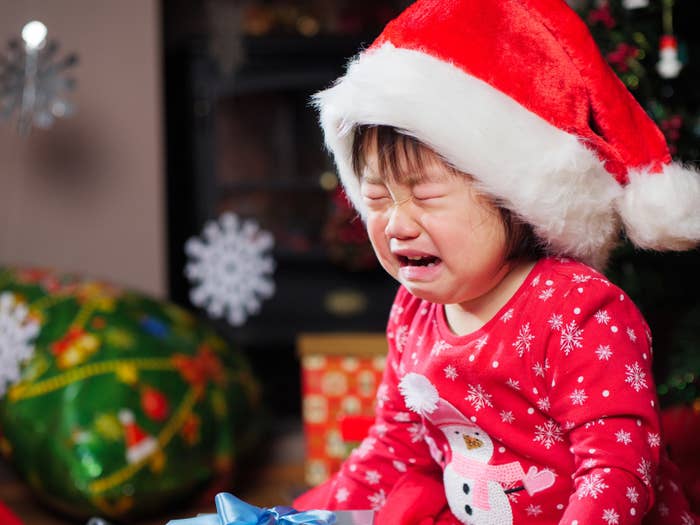
It’s not just you — people are prone to moods during the holidays, and more than half feel some stress and fatigue during the final weeks of the year.
“The holiday blues are real,” said Elaine Rodino, a psychologist in private practice in State College, Pennsylvania.
Travel, dealing with family, and spending money are among the top reasons some people feel less than jolly over the holidays. It’s typically not clinical depression, Rodino said — more of a malaise or dread over the storybook moments of Christmas: shopping, the family dinner, and opening presents.
“If one were to devise an experimental set of circumstances which would test the integrity of an individual’s mood control, one would invent the year-end holiday season,” wrote psychiatrist Jonathan Himmelhoch of the Western Psychiatric Institute and Clinic nearly four decades ago in a report on the holiday blues, calling such feelings a predictable, genuine reaction to the season.
“You may find yourself fighting over the remote with a sibling you haven’t seen in a year,” psychologist Pauline Wallin, author of Taming Your Inner Brat: A Guide for Transforming Self-Defeating Behavior, told BuzzFeed News. “Of course it is not about the remote, but power and competition, and the feelings around sibling rivalry.”
“Have a plan for dealing with it,” she advised. If you know one relative is going to be a problem, for example, think ahead on how you want to deal with them to feel better about yourself at the end of the holiday, perhaps by watching a movie or spending time with the nieces and nephews instead of joining a family argument.
“Emotional detachment is bad for resolving conflicts in close relationships, but for getting through short-term ones, it’s not a bad solution,” she said. Imagine you are watching a movie of people arguing (“or Mike Pence watching the president argue,” she joked) instead of jumping in the middle of the long-running family dispute.
“And if you can feel compassion for that grumpy uncle who drives you crazy — he might just be lonely — that’s better than being angry,” she said.

For college students, grades from a just-ended semester are a perpetual worry on returning home for the holidays, since those are often the subject of questions bombarding them when they walk through the door.
“There may be concerns about academic performance, about being honest with parents about having a less-than-stellar semester, fears of disappointing family members, not being honest about how things are going,” psychologist Sherry Molock of George Washington University told BuzzFeed News by email.
“Some students are discovering who they are (and are not) and are anxious about sharing this info with family,” she said. Sources of stress range from discovering a sexual identity or falling in love with someone who parents might dislike to changing majors. “I am often surprised about how scared students are to tell their parents they are switching to a major that they think their parents will disapprove of,” Molock said.
The upside of the holidays is that they end, and with them, seasonal stress for most people. “It’s okay to feel sad,” Wallin said. “I try to tell people that Christmas is just like any other day, it’s only 24 hours, and they can move on to feel a new sense of purpose afterwards.”
Although general malaise goes up over the holiday season, psychiatric referrals for suicides actually drop, CDC statistics show, and have for decades. The bulwark of family and friends being around seems to make people less likely to commit suicide.
A more worrisome time for people with serious depression comes in the spring, when suicide rates are highest. Mental health experts have written about a “rebound effect” or a “broken-promises effect” among people with clinical depression who soldier through the holidays but commit suicide later, after the joy of the season wears off.
If the negative feelings people have in December persist into January or the months afterward, something is more deeply wrong and you really should see someone for help, Rodino said. And if you have trouble getting out of bed months after the holidays, that’s a very bad sign.
Although the holiday blues are real for some, more people report feeling happy or festive during the holidays overall. “Christmas isn’t meant to be some sort of mental health challenge,” said Wallin. “People get too caught up in trying to make everything perfect for the holidays.”
“I ask kids in January or February what they got for Christmas. They don’t remember. So don’t worry if everything isn’t perfect.”
The National Suicide Prevention Lifeline is 1-800-273-8255. Other international suicide helplines can be found at befrienders.org.
